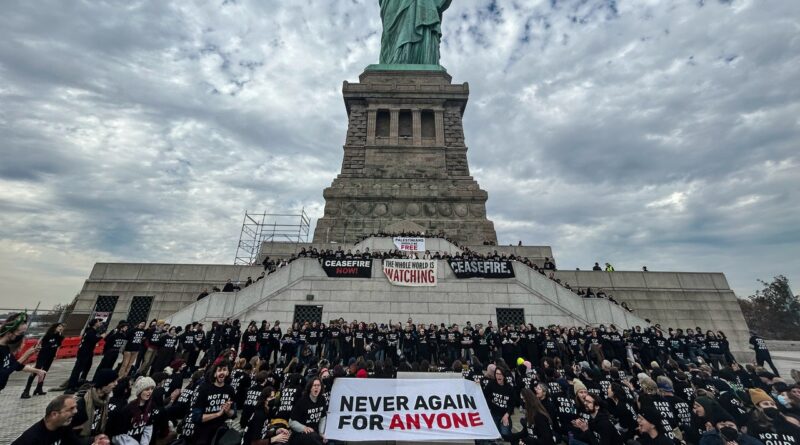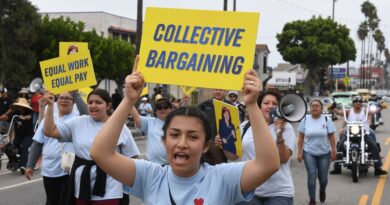How Anti-Zionist American Jews Are Organizing For a Ceasefire in Gaza
Since that violence is being funded in part with U.S. dollars, some American Jews, like Mateo Rojas, 28, feel a moral imperative to speak out. Rojas, who participated in October’s protests, is a teacher at the Workers Circle (a progressive Jewish center) in Boston. He has spent the past weeks figuring out how, as a Jewish educator, he can speak to his students about the violence in Gaza. The theme of his fifth grade class is social justice movements. “I know everyone says it’s a touchy issue,” Rojas said. “But genocide isn’t a touchy issue.”
Elana Goldman, a 25-year-old social work student from Los Angeles, was arrested on October 18th. Beyond direct action, she, like Rojas, focuses on speaking to members of her own community about her views on Zionism and the state of Israel.
“On a systemic level, I do think it’s important for Jews to openly say that they’re not Zionists, that Jews are not a monolith,” Goldman said. “It’s important for people to hear that. As people who have survived a genocide, it’s deeply disturbing to see that being done under the guise of Judaism.”
“It’s a lot of work, but that is what love and solidarity looks like,” Goldman said. “Doing that work to talk to people, to sit with them, to unlearn the propaganda. To sit with each other, and hold Jewish institutions accountable–which does have impact.”
Like many other protesters – including IfNotNow’s national spokesperson Eva Borgwardt, who told the rally crowd it could be “the biggest revival of the U.S. antiwar movement since the war in Iraq” – Rojas saw previous U.S. peace movements as instructive in this moment. This time, the violence is being broadcast live on our cellphones, unmediated even by cable news networks.
Inside the Cannon Building, the group formed a loose circle, and sat down. At the center were 22 rabbis and rabbinical students. Among them was May Ye, 29, a recent rabbinical school graduate who serves a congregation in Connecticut.
“I am the direct descendant of Holocaust survivors,” Ye said. “My grandfather was incarcerated in the concentration camp at Dachau.” Upon his release, Ye said, her grandfather warned against the creation of the state of Israel, believing that a Jewish state would not be what made Jews safe. That family legacy continued throughout the generations: Ye recalled her father sending letters to the editor about Palestinian human rights when she was a child. With that personal history in mind, Ye traveled down to D.C. on the 18th to stand with the 21 other rabbis.




